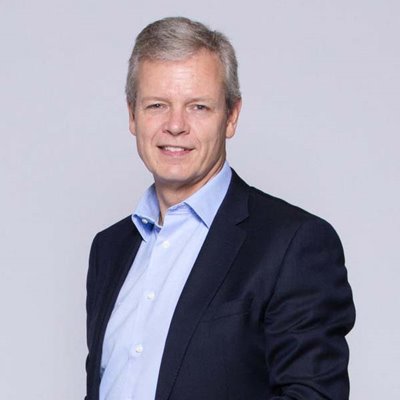Oct 14 | 2019
Sector Must Fight for Next Gen Interest
By Carly Fields
Those looking for a career with glitz need not apply: the project cargo industry is not a “glamor industry, no matter how much we think we are.” That’s George Abreu’s no-nonsense take on the employment attributes of the sector.
As GEODIS’s senior vice president for oil and gas, Abreu has first-hand experience of what the industry has to offer and why it faces a dearth of talent in the future. Speaking to Breakbulk, he explained the changing job requirements of the next generation: where once overseas assignments were a great lure, today’s new recruits put less weight on travel and more on flexible working and greater independence in their working life.
There are now so many other draws on young people when they are considering a career, he said. “The Amazons and the like have a more exciting product perception, so we are definitely competing against others for that talent base.” Consequently, attracting new talent today is not, Abreu said, “the simplest task.”
But while it might not be the simplest task, it’s not an impossible one. Abreu believes that the project cargo forwarding industry’s focus on sophisticated solutions can still excite people and draw next-generational groups, including Millennials, into the business and into GEODIS. There is, he said, a bright future, despite the challenges, as long as the sector is prepared to position itself and fight for talent.
Discussing service provision and the ever-increasing demands placed on logistics providers in the breakbulk industry, Abreu commented on the detrimental impact of companies straying from their strengths to meet intensified pressures from shippers. This is particularly true when it comes to geographical spread.
“It’s a very big world out there and there’s a lot of work going on in a lot of locations. It’s so tempting to stretch out to places where you may not have the necessary boots on the ground, structure or longevity,” he said. “You have to be very, very careful to commit to things in locations and in areas where you may not have as much experience as somebody else.”
Abreu believes the key to success in logistics is to stay where you’re good, where you have assets and where you have a structure.
“If you don’t do that, you risk failing, and that’s what everybody wants to avoid because the stakes are too high – projects are too big.” Where previously forwarders might have taken risks because projects were “below the radar,” today’s projects are more often than not large and highly visible. “So you’d better be good at it because your reputation is just as good as your last project,” he said.
Out of the Low
Looking at the project pipeline, Abreu sees reason to be positive as industrial segments start to come alive again and upstream oil and gas surges. “We’ve come out of the low,” he sanguinely notes.
For GEODIS, the Americas are “absolutely booming,” he said. “The U.S. is chugging away at a very strong GDP and Mexico has come back strong again.” And while there are certainly geopolitical complications to consider in the oil-based economies in South America, there has been promising stabilization.
Abreu also listed Thailand, Malaysia, Indonesia, Singapore and Korea as having “real strong potential where things are fabricated.” And then there are the hot spots in Africa. “Africa is one of those continents where the headlines always pop up. Mozambique, of course, is the ‘mega-headline’ because of all of the money being poured in there for gas drilling.”
Here Abreu refers to the two planned liquefied natural gas, or LNG, plants that will be built in Mozambique. The two LNG projects, by Anadarko and ExxonMobil, in its northern province will extract, liquefy and ship gas, found in abundant quantities offshore Mozambique. The recoverable gas recorded amounts to a decade’s worth of European consumption.
“That is definitely an area where a lot of people are going to be ready to try to support business,” Abreu said. Egypt is also noted for its planned upstream and downstream projects. Nigeria and Tanzania are other hotspots.
But for all its potential, Africa is a tough nut to crack. “Africa is a unique continent. Every continent will say this, but Africa really has a unique DNA. How you do business there, how you position yourselves, how you structure your ownership structure with partners – all of those things play into what you want to be in Africa,” Abreu said.
“The rewards are great, but you’ve got to go in contractually sound, structurally sound and you’d better have people that have been around the block a couple of times,” he said.
Carly Fields has reported on the shipping industry for the past 19 years, covering bunkers and broking and much in between.
Image credit: GEODIS
Those looking for a career with glitz need not apply: the project cargo industry is not a “glamor industry, no matter how much we think we are.” That’s George Abreu’s no-nonsense take on the employment attributes of the sector.
As GEODIS’s senior vice president for oil and gas, Abreu has first-hand experience of what the industry has to offer and why it faces a dearth of talent in the future. Speaking to Breakbulk, he explained the changing job requirements of the next generation: where once overseas assignments were a great lure, today’s new recruits put less weight on travel and more on flexible working and greater independence in their working life.
There are now so many other draws on young people when they are considering a career, he said. “The Amazons and the like have a more exciting product perception, so we are definitely competing against others for that talent base.” Consequently, attracting new talent today is not, Abreu said, “the simplest task.”
But while it might not be the simplest task, it’s not an impossible one. Abreu believes that the project cargo forwarding industry’s focus on sophisticated solutions can still excite people and draw next-generational groups, including Millennials, into the business and into GEODIS. There is, he said, a bright future, despite the challenges, as long as the sector is prepared to position itself and fight for talent.
Discussing service provision and the ever-increasing demands placed on logistics providers in the breakbulk industry, Abreu commented on the detrimental impact of companies straying from their strengths to meet intensified pressures from shippers. This is particularly true when it comes to geographical spread.
“It’s a very big world out there and there’s a lot of work going on in a lot of locations. It’s so tempting to stretch out to places where you may not have the necessary boots on the ground, structure or longevity,” he said. “You have to be very, very careful to commit to things in locations and in areas where you may not have as much experience as somebody else.”
Abreu believes the key to success in logistics is to stay where you’re good, where you have assets and where you have a structure.
“If you don’t do that, you risk failing, and that’s what everybody wants to avoid because the stakes are too high – projects are too big.” Where previously forwarders might have taken risks because projects were “below the radar,” today’s projects are more often than not large and highly visible. “So you’d better be good at it because your reputation is just as good as your last project,” he said.
Out of the Low
Looking at the project pipeline, Abreu sees reason to be positive as industrial segments start to come alive again and upstream oil and gas surges. “We’ve come out of the low,” he sanguinely notes.
For GEODIS, the Americas are “absolutely booming,” he said. “The U.S. is chugging away at a very strong GDP and Mexico has come back strong again.” And while there are certainly geopolitical complications to consider in the oil-based economies in South America, there has been promising stabilization.
Abreu also listed Thailand, Malaysia, Indonesia, Singapore and Korea as having “real strong potential where things are fabricated.” And then there are the hot spots in Africa. “Africa is one of those continents where the headlines always pop up. Mozambique, of course, is the ‘mega-headline’ because of all of the money being poured in there for gas drilling.”
Here Abreu refers to the two planned liquefied natural gas, or LNG, plants that will be built in Mozambique. The two LNG projects, by Anadarko and ExxonMobil, in its northern province will extract, liquefy and ship gas, found in abundant quantities offshore Mozambique. The recoverable gas recorded amounts to a decade’s worth of European consumption.
“That is definitely an area where a lot of people are going to be ready to try to support business,” Abreu said. Egypt is also noted for its planned upstream and downstream projects. Nigeria and Tanzania are other hotspots.
But for all its potential, Africa is a tough nut to crack. “Africa is a unique continent. Every continent will say this, but Africa really has a unique DNA. How you do business there, how you position yourselves, how you structure your ownership structure with partners – all of those things play into what you want to be in Africa,” Abreu said.
“The rewards are great, but you’ve got to go in contractually sound, structurally sound and you’d better have people that have been around the block a couple of times,” he said.
Carly Fields has reported on the shipping industry for the past 19 years, covering bunkers and broking and much in between.
Image credit: GEODIS




